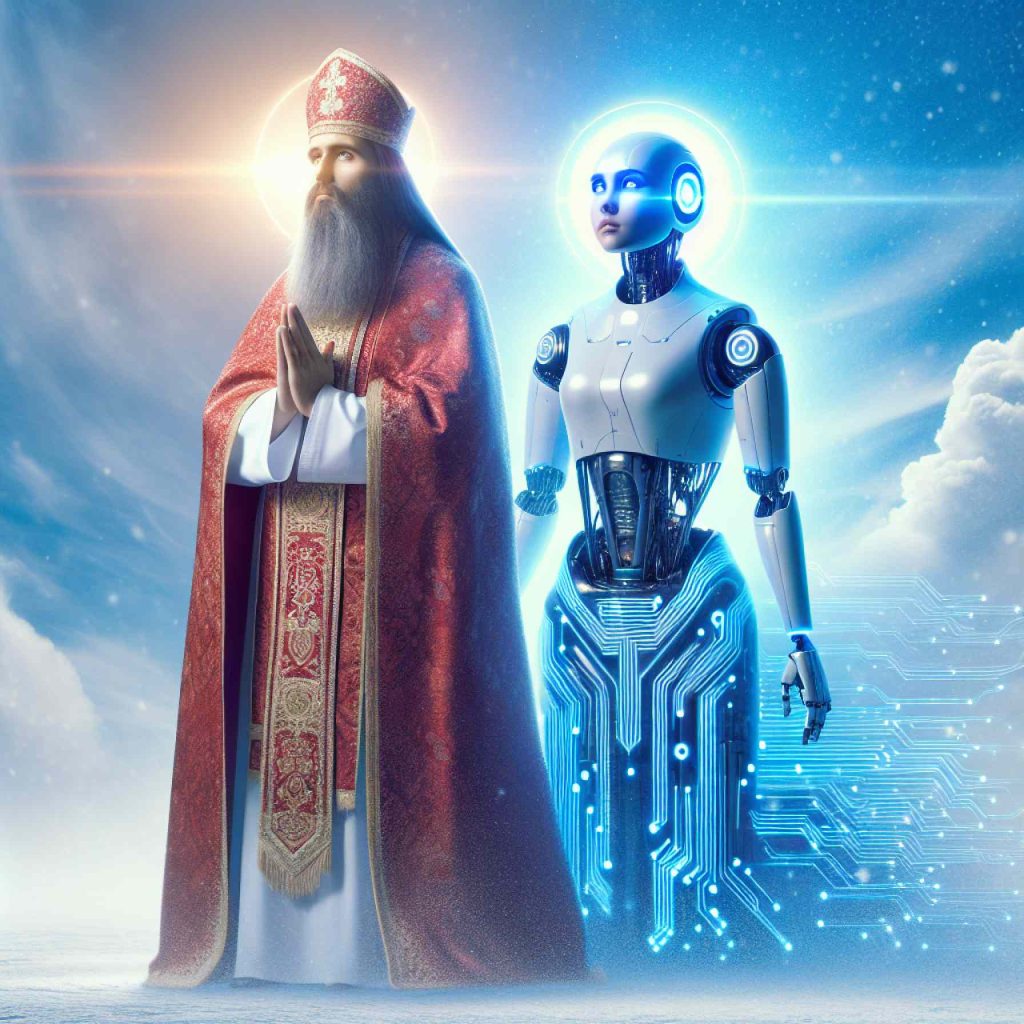
- Pope Leo XIV addresses the complex challenges of artificial intelligence, emphasizing its dual nature as an opportunity and ethical dilemma.
- He advocates for viewing AI beyond technological jargon, highlighting its impact on unskilled workers and marginalized communities.
- The Pope calls for balancing technological progress with compassion, urging stakeholders to prioritize stewardship and responsibility.
- Pope Leo XIV encourages a vision of AI not just as “artificial intelligence” but as “amplified integrity.”
- The Vatican positions itself as a key player in global AI discussions, pushing for frameworks that align technological advancement with societal welfare.
- The overarching message: As technology evolves, compassion and empathy should guide its trajectory.
A subtle breeze rustles through St. Peter’s Square, but it scarcely whispers the profound shift in the digital landscape from Rome’s ancient heart. Pope Leo XIV, a pivotal figure in an ever-diverging world, steps onto the global stage to tackle an unprecedented challenge: artificial intelligence.
With the cadence of a seasoned diplomat, Leo XIV embraces the nuances and ambitions driving the AI revolution. His recent address pierces through the cacophony of algorithmic triumphs and data proclamations. In his eyes, AI is neither menace nor miracle, but a profound opportunity wrapped in ethical dilemmas. It is a clarion call to humanity to guard its most vulnerable in this age of rapid technological evolution.
Imagery conjured by Leo XIV moves beyond the sterile jargon of technology. He equips his audience with vivid parables that juxtapose the untamed potential of AI against the tender fragility of unskilled workers and marginalized individuals. His message reverberates, highlighting an imperative safeguarding mission.
In the shadow of looming digital giants, Pope Leo’s approach isn’t to stifle innovation but to channel its energy towards humane pursuits. Echoing themes of stewardship and responsibility, he urges an equilibrium between progress and compassion. It is the human spirit that must guide, transform, and harness AI, lest it become an unchecked force.
As the race for AI dominance accelerates globally, the Vatican emerges, not just as a sanctuary of spirituality, but as a dynamic participant in worldly affairs. A call is issued to policymakers, engineers, and thought leaders—forge alliances and craft frameworks that prioritize society’s welfare.
In his foresight, Leo XIV molds the narrative: AI should not just be artificial intelligence but amplified integrity. As cathedrals stand resilient through ages, so too should the principles guiding AI in its relentless march forward.
The key takeaway from Pope Leo’s address echoes through time: As technology races ahead, it is compassion and empathy that must set the pace. It is an era where ancient wisdom meets modern innovation, redefining what it means to advance without leaving humanity behind.
The Vatican’s Vision: Guiding AI with Compassion in a Technological Age
The Intersection of Faith and Technology
In a world increasingly dominated by artificial intelligence, Pope Leo XIV stands as a beacon of moral guidance, adeptly addressing the ethical conundrums posed by rapid technological advancements. His approach highlights a profound intersection between faith and technology, urging a harmonious blend of progress and humanistic values.
Embracing the Opportunities and Challenges of AI
Pope Leo XIV views AI not as an adversary but as a neutral tool that can be harnessed for the greater good, provided we navigate its complexities with care. His address draws attention to both the opportunities and challenges AI presents:
– Opportunities: AI can revolutionize fields such as healthcare by providing better diagnostic tools, enhance education through personalized learning, and improve logistics and resource management to combat global issues like hunger and poverty.
– Challenges: Ethical dilemmas arise around data privacy, job displacement for unskilled workers, and the potential for AI to exacerbate existing inequalities. The Pope urges us to consider these critical challenges to ensure AI benefits all of humanity.
How-To: Ethical AI Development
To guide AI development ethically, consider these steps:
1. Ethical Frameworks: Establish clear ethical guidelines for AI development, focusing on transparency, fairness, and accountability.
2. Stakeholder Involvement: Include diverse stakeholders, such as ethicists, technologists, policymakers, and communities, in AI development discussions to ensure a holistic approach.
3. Fair Data Practices: Commit to fair data collection and usage practices, ensuring consent and protecting user privacy.
4. Continuous Monitoring: Implement ongoing assessments of AI systems to identify and mitigate unintended consequences promptly.
5. Educational Initiatives: Educate the workforce on AI skills to minimize job displacement and equip individuals to adapt to new technological landscapes.
Real-World Use Cases: AI in Service of Humanity
1. Healthcare Innovations: AI-driven technologies offer significant advancements in detecting diseases early and managing personalized patient care (source: National Institute of Health).
2. Disaster Response: AI tools can predict natural disasters and help with efficient resource allocation during emergencies, improving response times and saving lives.
3. Climate Change Mitigation: AI systems can analyze environmental data to formulate strategies, reduce carbon footprints, and encourage sustainable practices.
Market Trends: The Shift Towards Ethical AI
The global AI market is projected to grow significantly, with a marked shift toward ethical AI frameworks. Companies are increasingly prioritizing responsible AI practices to build trust and ensure long-term success (source: Gartner).
Controversies and Limitations
While AI promises immense benefits, it also fuels debates over its societal impacts:
– Bias in AI: Concerns persist regarding AI systems replicating or amplifying existing biases if not designed conscientiously (source: MIT Technology Review).
– Autonomy and Responsibility: As AI systems become more autonomous, questions arise about accountability and responsibility when AI decisions lead to negative outcomes.
Actionable Recommendations
– For policymakers: Collaborate internationally to create cohesive AI regulations focusing on ethical considerations and human rights.
– For businesses: Foster a culture of responsible AI development that prioritizes ethical considerations and transparency.
– For individuals: Stay informed and actively participate in discussions about AI’s impact on society to advocate for equitable technology practices.
Conclusion: A Path Forward
Pope Leo XIV’s address underscores the importance of embedding compassion and empathy in AI development. As the world strides into an AI-driven era, his vision of “amplified integrity” serves as a guiding principle for leveraging technology for the common good. This balanced approach ensures progress does not come at the expense of humanity’s core values.
For comprehensive insights into the Vatican’s initiatives and guidance on ethical issues, visit Vatican.



